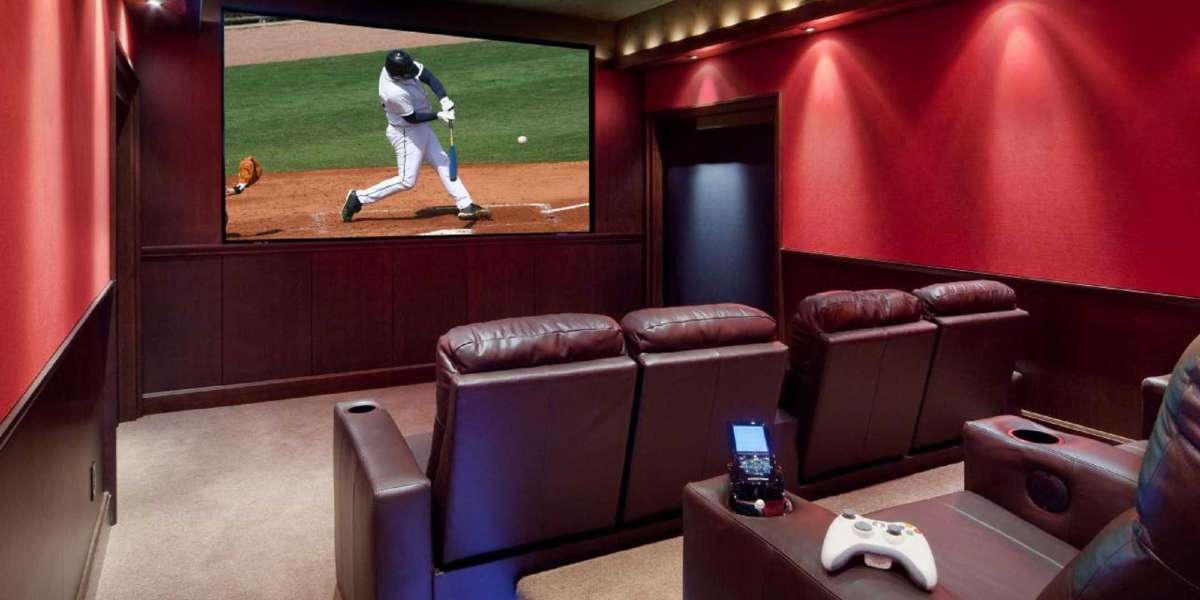Imagine walking into your home after a long day, greeted by the perfect temperature and fresh air. That’s the magic of an HVAC System. These systems are essential for maintaining comfort in our indoor spaces, providing heating, ventilation, and air conditioning all in one package. Whether it’s sweltering summer days or chilly winter nights, a reliable HVAC-System ensures that you enjoy a pleasant environment year-round. From cutting energy costs to improving indoor air quality, these systems play a pivotal role in our daily lives. As they dive deeper into this blog post about HVAC-Systems, you’ll learn how they work, what to consider when choosing one for your space, maintenance tips to keep them running smoothly, and so much more!
What Is An HVAC-System and How Does It Work?
An HVAC-System stands for Heating, Ventilation, and Air Conditioning. It plays a crucial role in maintaining comfort within residential and commercial spaces. The heating component warms your environment during cold months. This is typically achieved through furnaces or heat pumps that distribute warm air via ducts. Ventilation ensures fresh air circulates throughout the area. It removes stale indoor air while introducing clean outdoor air, promoting better indoor quality.
Air conditioning cools down spaces when temperatures rise. By utilizing refrigerants, this system absorbs heat from inside and releases it outside, resulting in a cooler atmosphere indoors. Each aspect of an HVAC-System works together seamlessly to provide year-round climate control. With advances in technology, modern systems can operate more efficiently than ever before. Proper maintenance enhances their functionality over time as well.
Benefits Of Installing a Modern HVAC-System
A modern HVAC-System brings a plethora of advantages that enhance both comfort and efficiency. First, these systems offer superior temperature control. With advanced technology, they can maintain consistent indoor climates year-round. Energy efficiency is another key benefit. Newer models consume less energy than older units, reducing utility bills significantly over time. Many systems also have programmable thermostats for better management of heating and cooling schedules.
Furthermore, contemporary HVAC-Systems often include air purification features. This improves indoor air quality by filtering out allergens and pollutants, promoting healthier living environments. Noise reduction is yet another perk; modern units operate more quietly compared to their predecessors. Enjoying a peaceful home becomes easier with advanced sound-dampening technologies in place. Installing a new system can increase property value, making it an attractive investment for homeowners looking to sell in the future.
Understanding Energy Efficiency In HVAC-Systems
Energy efficiency in HVAC-Systems is crucial for reducing energy consumption and lowering utility bills. It refers to how effectively an HVAC-System uses energy to provide heating, cooling, and ventilation. One key aspect of energy efficiency is the Seasonal Energy Efficiency Ratio (SEER), which measures cooling output during a typical season divided by total electric energy input. A higher SEER rating indicates better efficiency.
Another important metric is the Heating Seasonal Performance Factor (HSPF) for heat pumps. Understanding these ratings helps homeowners choose systems that align with their needs while promoting environmental sustainability. Regular maintenance also plays a significant role in maintaining energy efficiency. Cleaning or replacing filters can boost performance significantly, ensuring your system runs smoothly without wasting power. Investing in ENERGY STAR-certified products ensures you’re opting for equipment designed with maximum efficiency in mind, benefiting both your wallet and the planet.
Factors To Consider When Choosing An HVAC-System
Choosing the right HVAC-System involves several key factors. Here are bullet points about factors to consider when choosing an HVAC-System:
Sizing and Capacity
The HVAC-System must be properly sized for your home or building. An undersized system won't effectively heat or cool the space, leading to discomfort and increased energy consumption as it constantly runs. Conversely, an oversized system will cycle on and off too frequently, leading to uneven temperatures, poor humidity control, and premature wear and tear. Proper load calculations (often done by HVAC professionals using methods like Manual J) are crucial to determine the correct heating and cooling capacity in BTUs (British Thermal Units) or tons.
Energy Efficiency
Given that heating and cooling can account for a significant portion of energy bills, choosing an energy-efficient system is paramount. Look for systems with high Seasonal Energy Efficiency Ratio (SEER or SEER2 for cooling), Heating Seasonal Performance Factor (HSPF or HSPF2 for heat pumps), and Annual Fuel Utilization Efficiency (AFUE for furnaces) ratings. Energy Star certified models typically offer higher efficiency and can lead to substantial long-term savings on utility costs.
Climate and Local Conditions
The climate of your region heavily influences the ideal HVAC-System. In colder climates, systems with strong heating capabilities (like furnaces or dual-fuel heat pumps) are more beneficial, while in moderate climates, a versatile heat pump providing both heating and cooling might be ideal. Local factors like humidity levels and typical temperature swings should also be considered to ensure optimal performance and comfort.
Common Issues and Maintenance For HVAC-Systems
HVAC-Systems are vital for maintaining comfort, but they can encounter issues over time. One common problem is inadequate cooling or heating. This may stem from a dirty air filter or blocked ductwork. Another frequent concern is unusual noises. Sounds like banging or squealing often indicate mechanical problems that need attention. Ignoring these signs can lead to costly repairs. Regular maintenance plays a crucial role in preventing breakdowns. Simple tasks such as changing filters monthly and scheduling annual professional check-ups help keep systems running smoothly.
Leaking refrigerant is another issue that requires prompt action. It not only affects efficiency but can also harm the environment if left unaddressed. Maintaining clear airflow around your outdoor unit ensures optimum performance too. Regularly checking for debris and obstructions will enhance efficiency and extend the lifespan of your HVAC-System.
How To Optimize Your HVAC-System for Comfort and Efficiency
To optimize your HVAC-System for comfort and efficiency, begin with regular maintenance. Clean or replace filters every one to three months. This simple step enhances airflow and improves indoor air quality. Next, consider zoning systems. These allow you to control temperatures in different areas of your home independently. This not only boosts comfort but also saves energy by avoiding unnecessary heating or cooling.
Programmable thermostats are another smart investment. They enable you to set schedules based on your daily routines, thus reducing energy consumption when you're away. Seal any leaks in ducts and windows. Proper insulation prevents conditioned air from escaping, ensuring that your system doesn’t work overtime. Keep an eye on humidity levels. A balanced indoor environment can significantly enhance overall comfort while promoting better health throughout the space.
How HVAC System Improve Indoor Air Quality
HVAC System play a critical role in enhancing indoor air quality. They filter out dust, allergens, and pollutants from the air, creating a healthier environment. Advanced filters trap microscopic particles that can trigger allergies or respiratory issues. Regularly changing these filters is essential for optimal performance. Additionally, HVAC-Systems regulate humidity levels. High humidity can lead to mold growth while low humidity may cause discomfort and respiratory problems.
Some modern units come equipped with ventilators that introduce fresh air from outside. This helps dilute indoor contaminants and brings in oxygen-rich outdoor air. Air purification technologies integrated into HVAC-Systems eliminate volatile organic compounds (VOCs) and harmful bacteria. By continuously circulating the air, they ensure every corner of your space benefits from cleaner conditions. Investing in an efficient HVAC-System not only keeps you comfortable but also fosters a healthier living or working atmosphere.
Maintenance Tips to Keep Your HVAC-System Running Smoothly
Regular maintenance is key to ensuring your HVAC-System performs at its best. Start by changing the air filters every one to three months. Clogged filters restrict airflow and decrease efficiency. Next, clean the outdoor unit regularly. Remove debris like leaves or dirt that can block airflow. This simple task can significantly improve performance. Schedule professional inspections annually. Technicians spot issues early, preventing costly repairs later on. They check refrigerant levels and inspect electrical components for safety.
Consider cleaning ducts every few years as well; this helps remove dust and allergens from your indoor air. Keep an eye on thermostat settings and functionality. A malfunctioning thermostat can lead to temperature inconsistencies, wasting energy in the process.
Smart HVAC Technologies And Automation
Smart HVAC technologies are revolutionizing how we manage indoor climates. With the rise of automation, systems can now learn your patterns and preferences. This means your home can be cooler when you’re there and save energy while you're away. Programmable thermostats allow for precise temperature control. You can adjust settings remotely through mobile apps or voice commands. Imagine coming home to a perfectly cooled space without lifting a finger.
Additionally, smart sensors monitor air quality and humidity levels in real-time. They provide feedback that helps maintain optimal conditions for health and comfort. Integration with other smart home devices adds another layer of convenience. For example, linking your HVAC-System with smart blinds can enhance energy efficiency by blocking out heat during the day. Investing in these advanced features not only enhances comfort but also promotes sustainability by reducing energy consumption over time. The future of climate control is here, making life easier than ever before.
Common HVAC Issues and How to Troubleshoot Them
HVAC-Systems can sometimes act up, leading to discomfort or inefficiency. One common issue is inadequate cooling or heating. This could be due to dirty filters or blocked ducts. Regularly checking and replacing filters can make a significant difference. Another frequent problem is unusual noises coming from the unit. These sounds often indicate loose components or mechanical wear. It’s wise to inspect your system for any visible signs of damage.
Leaking refrigerant is another concern that not only affects performance but also poses safety risks. If you notice ice buildup on coils, it might signal low refrigerant levels, which requires professional attention. Thermostat issues are quite prevalent too. If your HVAC isn’t responding as expected, recalibrating the thermostat may solve the problem without calling in an expert right away.
Choosing The Best HVAC-System for Residential and Commercial Spaces
Choosing the right HVAC-System is crucial for both residential and commercial spaces. Start by assessing the size of your area. A larger space may require a more powerful unit to ensure optimal comfort. Consider energy efficiency ratings as well. Look for systems with high SEER (Seasonal Energy Efficiency Ratio) values, which can lead to lower utility bills over time.
Different types of HVAC-Systems serve various needs; central air conditioning, ductless mini-splits, or heat pumps might be suitable depending on your setup. Think about zoning capabilities too, especially in commercial properties where different areas have varying heating and cooling demands. Don't overlook installation costs versus long-term savings. Investing in quality tends to pay off through durability and reduced repair needs down the line. Always consult with a professional who can help you make an informed choice tailored to your specific requirements.
Conclusion
An HVAC System is more than just a luxury; it’s a pivotal part of modern living. Investing in the right setup ensures comfort throughout the year. Whether it's sizzling summers or frigid winters, an efficient HVAC-System adapts to your needs. Upgrading to smarter technology enhances convenience and energy savings, paving the way for eco-friendly living. Understanding maintenance plays a vital role in longevity and performance as well. Regular check-ups can prevent minor issues from turning into costly repairs.
FAQs
What is the average lifespan of an HVAC System?
Most HVAC System last between 15-20 years with proper maintenance. Factors like usage patterns and regular check-ups can extend their life.
How often should I service my HVAC-System?
It's recommended to have your system serviced at least once a year—ideally before peak heating or cooling seasons—for optimum performance.
Are programmable thermostats worth it?
Yes! Programmable thermostats help manage energy use by allowing you to set specific temperatures based on your schedule, leading to potential savings on utility bills.
Can I install an HVAC-System myself?
While DIY projects can be rewarding, installing an HVAC-System requires professional expertise for safety and compliance with local regulations.
Related Business Listings |





